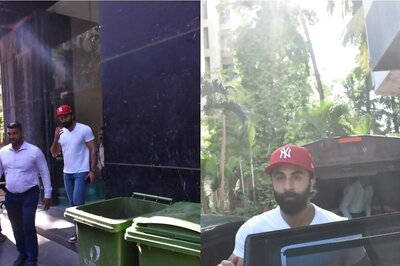
views
New Delhi: Tamil Nadu Chief Minister J Jayalalithaa was on Monday asked by the Supreme Court to appear personally on October 20 before a Karnataka trial court, adjudicating a disproportionate assets case against her.
A bench of justices Dalveer Bhandari and Deepak Verma, however, left it to the trial court judge to decide her plea for being examined at a separate building, other than the regular court, in view of security considerations.
The apex court said the presiding judge shall ensure that she is examined in a proper environment.
The apex court passed the order after Jayalalithaa, in response to the earlier directions that she must appear on Monday, agreed through senior counsel Harish Salve that she would present herself before the trial court judge in Karnataka.
Rejecting Jayalalithaa's earlier plea for grant of exemption from personal appearance, an apex court bench had on September 5 observed that she was trying to delay proceedings.
Jayalalithaa had sought exemption from personal appearance for recording her statement under Section 313 of the Criminal Procedure Code on grounds of threat to her security.
Earlier, appearing for the Chief Minister, Salve had contended that the trial court had erroneously rejected her plea for exemption from personal appearance and pointed out that section 313(5) of the CrPC grants liberty to an accused to answer the questions in writing.
Jayalalithaa had pleaded that it has become difficult for her to appear before the trial court after becoming chief minister and there were definite security threat perceptions.
However, the argument failed to convince the bench, which said Section 313 of the CrPC was a salutary provision intended to provide principle of natural justice and also allow the magistrate concerned to observe the demeanour of the accused.
The disproportionate case against her relates to the alleged accumulation of assets worth over Rs 66 crore by her between 1991 and 1996.
She has alleged that the cases were foisted against her by the previous DMK government for political reasons. The case had been transferred to Karnataka to ensure a fair and free trial.



















Comments
0 comment